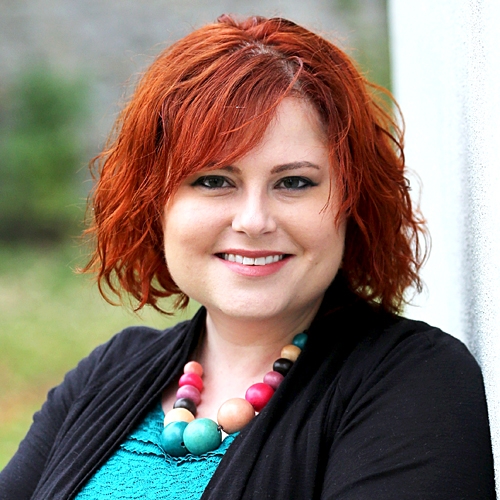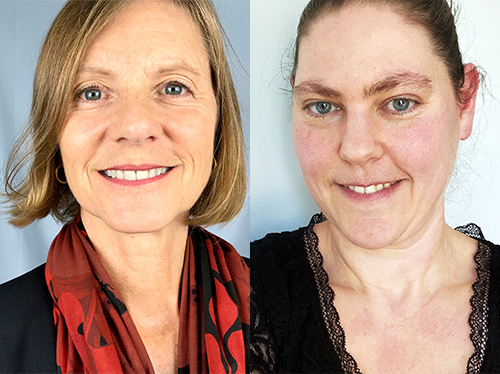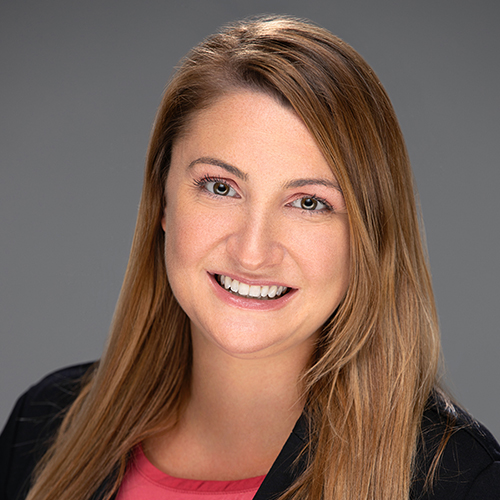 IBCLC Detailed Content Outline: Psychology, Sociology, and Anthropology Focused CERPs - Section V
IBCLC Detailed Content Outline: Psychology, Sociology, and Anthropology Focused CERPs - Section V
Access CERPs on Psychology, Sociology, and Anthropology for the IBCLC Detailed Content Outline recertification requirements. Enjoy convenient on-demand viewing of the latest Psychology, Sociology, and Anthropology focused IBCLC CERPs at your own pace.


Dr. Andrew Dorough is a native of St. Louis, Missouri. He attended Westminster College in Fulton, Missouri, and graduated with a Bachelor of Science in biology. He then earned his Doctor of Chiropractic Degree from Logan College of Chiropractic in St. Louis, Missouri. He later earned a post-graduate certification from the International Chiropractic Pediatric Association (CACCP). He is qualified to deliver highly skilled and safe treatment to pregnant and postnatal patients and to neonatal and infant patients. Dr. Dorough enjoys providing collaborative care. He currently works in a family medicine clinic which boasts a breastfeeding medicine physician IBCLC, along with other IBCLCs, two nurse practitioners and a physician assistant. He assesses and treats infants with various forms of structural issues, including but not limited to cranial bone deformation (plagiocephaly), torticollis, and tongue and neck dysfunction, as related to feeding difficulties and infant well-being.
Topic: Collaborative Care With a Chiropractor for Infant Feeding Dysfunction - [View Abstract]
The perinatal period along with labor and delivery, is complicated and miraculous. The midwife and chiropractor are in a unique position to honor and assist this miracle and process. This presentation will delve into how midwives and chiropractors can work collaboratively to improve outcomes for clients. Learn about how the Webster technique is specifically designed to prepare the birthing person for an optimal and less stressful experience during their labor and delivery. The attendees will better understand how to find a chiropractor who practices webster technique and how to explain this type of care to the birthing person they are working with.

View Details / Enroll


Dr. Andrew Dorough is a native of St. Louis, Missouri. He attended Westminster College in Fulton, Missouri, and graduated with a Bachelor of Science in biology. He then earned his Doctor of Chiropractic Degree from Logan College of Chiropractic in St. Louis, Missouri. He later earned a post-graduate certification from the International Chiropractic Pediatric Association (CACCP). He is qualified to deliver highly skilled and safe treatment to pregnant and postnatal patients and to neonatal and infant patients. Dr. Dorough enjoys providing collaborative care. He currently works in a family medicine clinic which boasts a breastfeeding medicine physician IBCLC, along with other IBCLCs, two nurse practitioners and a physician assistant. He assesses and treats infants with various forms of structural issues, including but not limited to cranial bone deformation (plagiocephaly), torticollis, and tongue and neck dysfunction, as related to feeding difficulties and infant well-being.
Topic: Collaborative Care With a Chiropractor for Infant Feeding Dysfunction - [View Abstract]
Evidence suggests that trauma during pregnancy, labor and delivery may be a contributing factor to soft tissue and joint restrictions that affect an infant’s inability to latch and effectively transfer milk. How can lactation and medical experts identify the signs of dysfunctional movements that contribute to feeding dysfunction? To what extent can chiropractic care, within a collaborative model, safely and effectively help to correct feeding dysfunction? This session will enable attendees to elicit a more careful history, and to notice often overlooked signs that cannot be resolved with better breastfeeding management, but rather, indicate referral to a pediatric chiropractor.


Tamara Drenttel Brand holds an MA in Near Eastern Studies from the University of Arizona and a Master’s in Public Health (MPH) from the American University of Beirut. She spent 10 years in the Middle East, where she worked as a public health practitioner, infant and maternal health consultant and an IBCLC. She has supported breastfeeding dyads from all over the world both in private practice and as a volunteer. In 2011, she founded and still actively facilitates “Mama 2 Mama Beirut Breastfeeding Support,” the largest breastfeeding peer support network in the Middle East (currently at 25k+ members). Additionally, she founded Galactablog, a professional group for lactation specialists and those aspiring-to-be (currently at 4.7k+ members) and has authored several articles for La Leche League’s monthly leader publications in both the Middle East and Ireland.
She is currently an international speaker on the topics dealing with breastfeeding in the Middle East, innovative lactation teaching strategies, working in resource-scarce settings, providing culturally sensitive lactation support, developing and implementing peer counselor training programs, mast cell disease and other related topics. Due to her own chronic health conditions, she has a special interest in educating others about mast cell disease and supporting those with chronic illnesses. She currently resides in a seaside village in Ireland with her family.
Topic: Contextualizing Breastfeeding in Lebanon - [View Abstract]
Topic: Lactation Education Outside the Box: Innovative Teaching Strategies to Engage Your Audience - [View Abstract]
Topic: Mast Cell Diseases and Lactation Care in the Post-Covid Era - [View Abstract]
Topic: Providing Culturally Sensitive Support for Breastfeeding Muslim Families - [View Abstract]
Topic: Reflections on a Breastfeeding Peer Counselor Program in Lebanon: Lessons Learned and Looking Forward - [View Abstract]
In Lebanon, nearly all mothers attempt to initiate breastfeeding. Despite high initiation rates, only 40% of mothers exclusively breastfed through the first month and nationally, a mere 2.4% continued to exclusively breastfeed between 4 and 5 months. Early weaning is a pressing public health concern as infant and under-5 morbidity rates are high. Environmental issues like water quality and sanitation can be problematic when supplemental formula or contaminated water is used. This presentation examines the breastfeeding trends in Lebanon and explores the complex and often overlapping historical, social, cultural, economic and policy determinants behind early weaning. Next, this presentation analyzes newly emerging factors such as the power of social media, collaboration of lactation specialists and the rise of influential mother support networks. The presentation will conclude by highlighting the growing breastfeeding support infrastructure in Lebanon, for the most part, facilitated by breastfeeding mothers themselves.

View Details / Enroll
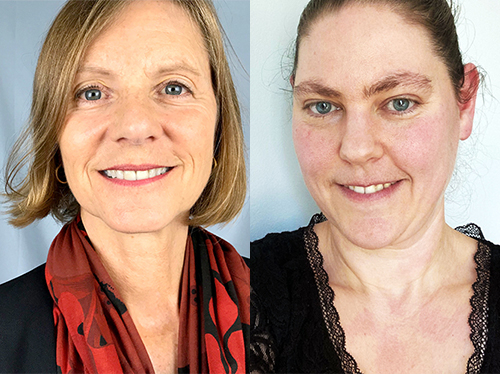

Heidi Heflin RN, MN, CPSTI became a Child Passenger Safety (CPS) Technician in 2013, then an instructor with training in transportation of children with disabilities and school bus transportation. A year later, she established the CPS exhibit at the American Academy of Pediatric Conference for >10,000 attendees seen annually since. She instantly saw the need to combine her experiences by advising, educating, and advocating for nurses in CPS, leading to national, then international presentations. In 2018, she relaunched CPS-In-Healthcare Google group to support hospitals without CPS staff. She’s written for NANN E-News for neonatal nurses and CPS Express for CPSTs. In 2021, she joined the Association for the Advancement of Automotive Medicine and is revising their child restraint policy. She was named a Kidz in Motion ‘CPS Hero’ 2019, 2022, and was a recipient of the SafetyBeltSafe U.S.A. 2022 Siegel Child Safety Restraint Award. Her research examining neonatal nurses’ CPS knowledge and practice is pending publication. Heidi ‘s fervor is for working with CPS pioneers in lower- and middle-income countries. Her favorite work is with CPS Malaysia especially when she met with the Director of the Road Safety Council in 2018. When not working, she cycles with friends, hikes with her dog Olive, or ocean-swims with dolphins.
Carrie Rhodes is the Passenger Safety Program Coordinator at Nationwide Children's Hospital in Columbus, Ohio. She is a Child Passenger Safety Technician-Instructor, Certified Health Education Specialist, and instructor for Safe Travel for All Children: Transporting Children with Special Healthcare Needs, and holds a Master of Transportation Safety Administration from Clemson University. In her role as Passenger Safety Program Coordinator, she focuses on facilitating safe transportation at the time of discharge for patients of all ages, from neonates to teens. Her work includes frequent assistance with car seat tolerance screenings across the hospital's neonatal intensive care units, working with families and clinical staff to achieve the correct balance between a neonate's cardiorespiratory safety and their protection in the event of a motor vehicle crash. She is passionate about ensuring NICU staff understand the importance of both neonate positioning and proper car seat use, as well as remaining abreast of the most currently available evidence to inform transportation decisions and practices.
Healthcare professionals play an important role in promoting the safety of neonates during motor vehicle travel. Properly securing neonates in age- and size- appropriate car seats reduces the risk of serious injury or death from a motor vehicle crash, yet research and field data show most infants and children are incorrectly secured in their car seats. Additionally, screening fragile infants for positioning and tolerance in their car seat reduces the risk of cardiorespiratory compromise. However, research demonstrates that although the American Academy of Pediatrics continues to recommend that at-risk infants be monitored for tolerance in an appropriate car seat or car bed, knowledge, policies, and practices vary widely between healthcare institutions. In light of these concerns, this presentation will review the rationale behind the recommendation to complete a Car Seat Tolerance Screening (CSTS) and discuss common misconceptions about the process and results. Additionally, the steps to set up and conduct a CSTS will be discussed, including a focus on proper harnessing and positioning of the neonate. Finally, the scope of practice of the provider, the bedside nurse, and the hospital’s Child Passenger Safety Technician will be explored.

Diet Culture and Fat-Phobia: Supportive Counseling Around Weight, Health & Lactation

Bonnie Holt Logsdon (she/her), is a Registered Dietitian, International Board Certified Lactation Consultant, and Certified Lactation Educator™ through CAPPA, and a DONA-trained birth doula with over 18 years of experience in community-based practice.
In her private practice, Bonnie Knows Breast, she blends her nutrition and lactation work to support families during the prenatal and postpartum periods. Bonnie also mentors IBCLC candidate students, teaches the Certified Lactation Educator (CLE) course, and offers public speaking on lactation and nutrition-related topics.
Bonnie is committed to giving personalized, affirming care and education to each family, individual, and professional she works with! Supporting families during this critical and emotional time in their lives is such important work. Bonnie promises compassionate, non-judgmental support and information.
Bonnie and her husband Brent, have a 7-year-old son, Finley. They enjoy quality time together playing board games, cooking, traveling, and hiking in as many National Parks as possible.
The mission of Bonnie Knows Breast is to empower people with education to make informed decisions related to their health and the health of their babies. Bonnie supports families of all backgrounds, structures, and identities and believes everyone deserves to be supported in their journey.
The medical community spends a lot of time and energy discussing weight as it relates to health. This message becomes a focus particularly in the postpartum period when people begin to think about “dropping the baby weight”. A frequently shared statement about breastfeeding is that it may cause weight loss. This information can be the driver for some to decide to breastfeed.
Weight stigma is a topic that surrounds our tiny clients as early as in the womb when we talk about delivering a “big baby” or as we focus on growth charts and weight gain for babies which can be a big trigger for the parent who may have a past history of disordered eating. Comments about a baby being “too big” or having reached a certain weight and now needs solid foods sooner are often discussed.
What do our intake forms ask as it relates to weight or past history of eating disorders? How does our office furniture function to seat people comfortably with all body types? How do we communicate to clients about food intake and the impact of lactation, appropriate weight gain for a baby, or the benefits of breastfeeding?
As healthcare professionals, we have to acknowledge our own biases around weight stigma and actively work to change the way we practice to be weight inclusive for the dyad.

View Details / Enroll


Christine Bishop is a neonatologist, bioethicist, medical educator, and Assistant Professor of Pediatrics at Wake Forest University School of Medicine and Brenner Children’s Hospital in Winston-Salem, NC. She founded and directs the Brenner Children’s Hospital Care Always ™ Neonatal/Perinatal Palliative Care Program that provides holistic care for infants with life-limiting and complex medical conditions. Dr. Bishop received her MD from The Ohio State University School of Medicine and Public Health and completed her pediatric residency and neonatology fellowship at the University of Texas Health Sciences Center San Antonio. She completed a Master of Arts in bioethics at the Wake Forest University Center for Bioethics, served as the lead clinical ethics consultant for Wake Forest Baptist Medical Center, chairs the Clinical Ethics Consultation Committee, and co-directs the undergraduate medical humanities course at Wake Forest University School of Medicine.
Palliative care is a dynamic, multidisciplinary field of medicine that focuses on holistic care for patients with complex, serious, and life-limiting conditions. Neonatal/perinatal palliative care involves care for women pregnant with fetuses who have potentially life-limiting conditions, a holistic approach to family care and decision making, and care for infants with life-limiting or complex medical conditions. This session will discuss key aspects of neonatal/perinatal palliative care. We learn so much from our patients and families, and their stories will provide the framework as we work through important concepts in neonatal/ perinatal palliative care. Topics to be discussed include communication, shared decision making, managing uncertainty, pharmacologic and non-pharmacologic approaches to care, the role of hospice, and ethical issues involved in care of neonates at the end of life.

View Details / Enroll
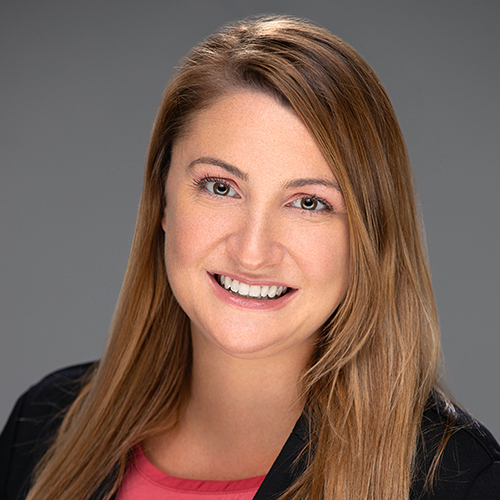

Dr. Jennifer Barnes is the Neonatal Intensive Care Clinical Pharmacy Specialist at Levine Children’s Hospital in Charlotte, NC. She has over 10 years of experience within the field. Dr. Barnes received her bachelor’s degree at Virginia Tech and her Doctor of Pharmacy at Virginia Commonwealth University’s Medical College of Virginia. She completed her pharmacy practice residency at Alamance Regional Medical Center- Cone Health. Dr. Barnes is board certified in pediatric pharmacotherapy. She is also an active member of the Pediatric Pharmacy Association (PPA) and is currently serving as the neonatology committee chair. Dr. Barnes serves as a clinical assistant professor for pharmacy advanced practice rotations for University of North Carolina, University of South Carolina, Wingate University and High Point University. Her current research areas of interest include the role of diuretics in bronchopulmonary dysplasia treatment and antibiotic stewardship for late-onset sepsis amongst other topics.
Topic: Get the LOW Down on Neonatal Hypotension - [View Abstract]
Topic: Starbucks for Babies? Caffeine Use in Neonates - [View Abstract]
Many premature infants spend months within neonatal intensive care units (NICUs). During their NICU admission, typical preventive care ideally should also be addressed. The Centers for Disease Control and Prevention (CDC) recommends that infants and children be vaccinated at the recommended schedule regardless of premature birth. In this presentation, we will review the different immunizations given in the first six months of life that are most relevant to patients in the NICU. Additionally, we will compare distinctive immunogenic and tolerability aspects for the term and preterm population. There is also tremendous growth in new vaccines and viral prophylaxis options coming to market soon. This presentation will also address these new agents and how they are pertinent to the NICU population. So don’t miss your shot to further your immunization knowledge.

Eating Disorders in the Perinatal Client: A Trauma Informed Model

Kristin is a Licensed Clinical Social Worker and IBCLC in private practice in central NJ. Her practice specialties are low supply, maternal and infant mental health, and the intersection of ethnicity, sexual orientation, and gender in the care of the new family. She has spoken on various lactation, mental health, and equity topics for USLCA, the Lehigh Valley Breastfeeding Association Conference, the Appalachian Breastfeeding Conference, LPPEC, LC in PP, and for LLL of the Garden State. She designed and taught a training course on Mental Health First Aid for Perinatal Providers. She has been a featured speaker on several lactation related podcasts.
She is the mother of two children who nursed full term despite maternal IGT, and who are now 16 and 13. She is an anti racist LGBT+ activist, a member of transformative works fandoms, and makes fighting for a better world part of her daily life.
As lactation professionals, we see clients who are experiencing many challenges during the perinatal period. Clients with eating disorders are uniquely at risk, as are their babies. This presentation will educate the perinatal professional about how eating disorders present in the childbearing year and beyond. It will explore the connection between trauma and disordered eating, and teach how to be a trauma informed provider for eating disordered clients. It will discuss the specific and unique challenges the person with an eating disorder may have during lactation, including postpartum body image, elimination diets, and provider bias. The learner will gain the skills needed to screen for disordered eating and provide culturally humble and appropriate referral for congruent care.

Empowering Breastfeeding in Women Receiving Medication-Assisted Treatment for Opioid Use Disorder: A Call for Policy Change

Dr. Kelly McGlothen-Bell is an Assistant Professor at UT Health San Antonio, School of Nursing. As a nurse scientist, Dr. McGlothen-Bell is dedicated to understanding and resolving perinatal-infant health disparities in underrepresented groups, particularly among mother-infant dyads impacted by substance use disorders and preterm births. Dr. McGlothen-Bell uses interdisciplinary research, bio-behavioral methodologies, and community-engaged strategies to define and explore health priorities that can be remedied through culturally appropriate and sustainable health solutions. Her program of science focuses on understanding the relationship between infant feeding behaviors and readiness in high-risk infants and attunement between the primary caregiver and child during infancy and toddlerhood. The culmination of these findings contributes to the development of evidence-based interventions geared toward improving parental engagement and pediatric feeding success in marginalized populations. Dr. McGlothen-Bell has published numerous peer-reviewed articles related to developmental strategies for high-risk infants. She has also presented her work at conferences nationally and internationally. Dr. McGlothen-Bell has received numerous awards to include the 2019 National Association of Neonatal Nurses (NANN) Mentee/Mentor Grant Award. She was also selected as a 2019-2020 Academy Jonas Nurse Policy Scholar.
Topic: Feeding Behaviors in the Opioid Exposed Infant - [View Abstract]
Inequitable access to mother's milk often disempowers those who may benefit the most from it's' benefits. Moreover, suboptimal breastfeeding has the potential to negatively impact the health and well-being of future generations to come. Mother's own milk is internationally accepted as the most optimal source of nutrition for infants, yet breastfeeding initiation and duration rates among minority populations (i.e., women with opioid use disorders [OUDs]) continue to lag significantly behind that of the general population. The implications of the current U.S. opioid crisis and its increasing influence on women of reproductive age presents important considerations for the ways women and infants may receive inequitable access to breastfeeding and the benefits of mother's milk. In this presentation, learn the keys needed to empower lactation support providers to advocate for the use of scientific evidence that informs breastfeeding practices for women receiving MAT for OUD.

View Details / Enroll

Exploring Bias and Racism in Sexual and Reproductive Health Care in Remote Canada: A Collection of Stories

Heather is a Métis Midwife from Winnipeg, Manitoba. She studied midwifery at Laurentian University, focusing on rural and remote practice. Heather practiced midwifery at the Seventh Generation Midwives Toronto for two years before moving to Hay River, Northwest Territories to establish a Midwife practice and help return birthing services to the community. Heather is now living and working in Yellowknife, Northwest Territories and is president of the Midwives Association of the Northwest Territories and is a Core Leader of the National Aboriginal Council of Midwives.
Systemic racism and bias of individuals in healthcare has a significant impact on the health and well-being of clients/patients, care providers, and communities.
The Canadian midwifery model of care is well-suited to mitigate some of the disparities caused by bias and racism in sexual and reproductive health care. It is also not impossible for well-intentioned midwives to contribute to, and uphold the systems that discriminate.
Drawing from her lived experience as a Métis midwife, Heather will share anecdotes and stories that illustrate the stark differences between communities where there is no access to midwifery care, compared to a community with access. She will explore ways that systemic racism is manifest within sexual and reproductive health care in Canada, and the impacts on patients/clients, healthcare providers, and communities.
Strategies to mitigate these negative impacts must be led by the communities that experience them and supported by others who work and live with these people. A strengths based, community-led approach must be taken. This requires taking a deep look within ourselves and the systems that we work in to understand the breadth of the problem that we face.
Participants will leave the presentation with concrete steps they can take to help combat racism and work towards dismantling systems that contribute to ongoing oppression.

View Details / Enroll





